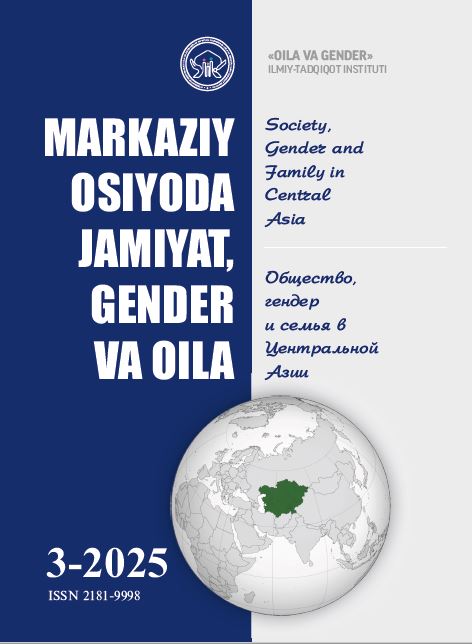The impact of changing values on socio-psychological adaptation in migrant families
DOI:
https://doi.org/10.65185/mojgo.vi.263Abstract
The article analyzes the transformation of values in migrant families and the impact of this process on sociopsychological adaptation. The differences that arise during the migration process between national values and the values of the new socio-cultural environment, intergenerational relations, and changes in the family psychological environment are highlighted based on scientific sources
Keywords:
migrant families values transformationReferences
Berry, J. W. Acculturation: Living successfully in two cultures. International Journal of Intercultural Relations, 29(6), 2005.
Birman, D., Trickett, E. J. Cultural transitions in first-generation immigrants: Acculturation of Soviet Jewish refugee adolescents and parents. Journal of Cross-Cultural Psychology, 32(4), 2001.
Castles, S., de Haas, H., Miller, M. J. The age of migration: International population movements in the modern world. Palgrave Macmillan, 2014.
Ward, C., Kennedy, A. The measurement of sociocultural adaptation. International Journal of Intercultural Relations, 23(4), 1999.
Schwartz, S. J., Unger, J. B., Zamboanga, B. L., Szapocznik, J. Rethinking the concept of acculturation. American Psychologist, 65(4), 2010.
Triandis, H. C. Individualism and collectivism. Boulder, CO: Westview Press, 1995.
Inglehart, R., Baker, W. E. Modernization, cultural change, and the persistence of traditional values. American Sociological Review, 65(1), 2000.
Downloads
Published
How to Cite
License
Copyright (c) 2025 Umarova Shohida Absalomovna

This work is licensed under a Creative Commons Attribution 4.0 International License.










